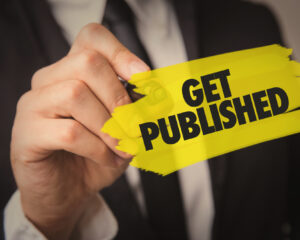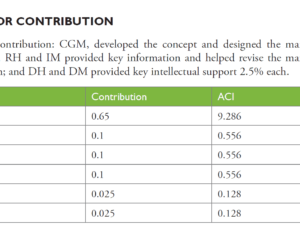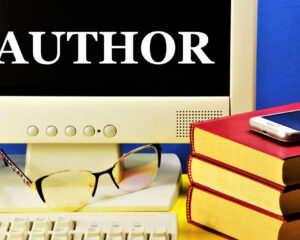Before formally submitting to a journal, you can contact the editor describing what you would like to get published. This is known as a presubmission
Read more

Before formally submitting to a journal, you can contact the editor describing what you would like to get published. This is known as a presubmission
Read more
The average number of authors on scientific articles has increased 5-fold over the last 100 years, from one author per paper in 1913 to more
Read moreJournals often struggle to find willing reviewers, which can lengthen the publication process. To combat this, you may be requested to suggest reviewers at the
Read more
The active voice promotes simple, straightforward writing. As such, most scientific journals encourage the use of the active voice over the passive voice [1]. Active voice –
Read more
In this blog, our guest blogger, Professor Emeritus Dolores Takemoto from Kansas State University discusses plagiarism in scientific documents: what it is, what the penalties
Read more
In this infographic, we provide some useful tips to help you write better research papers. The infographic contains the following text: Title Keep the title
Read more
A key aspect of producing a well-written scientific manuscript worthy of publication is the use of appropriate verb tenses in the different sections of the
Read more
Make your writing clear Say what you mean For example, the sentence The observed changes in the gut microbiota caused inflammation in the mice. suggests
Read more
his question was asked in the Q&A session of a recent talk on the topic of scientific publishing presented by International Science Editing in China. In this
Read more
In this blog, our guest blogger, Professor Emeritus Dolores Takemoto from Kansas State University discusses how to write an introduction. A thorough introduction is a
Read more